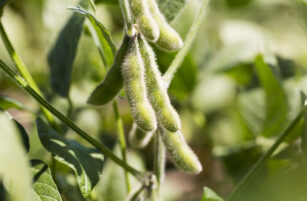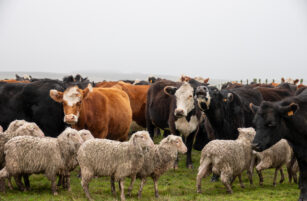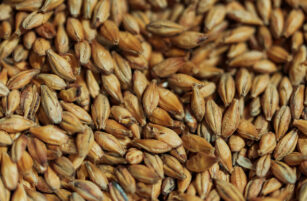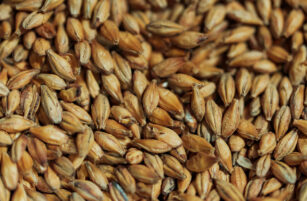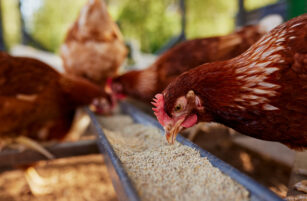Insight Focus
- Three Ukrainian grain harvests could be hit by war, minister says
- US to build grain silos on Polish-Ukrainian border
- Third of Sudanese face acute food insecurity

Russia’s invasion of Ukraine will create a global wheat shortage for at least three seasons by keeping much of the Ukrainian crop from markets, Ukrainian agriculture minister Mykola Solskyi (pictured above) told Reuters in an interview.
“Now we are talking about three wheat harvests at the same time: we cannot take out last year’s crop, we cannot harvest and take out the current one, and we do not particularly want to sow the next one,” he said.
Fears of extended food insecurity caused by the war were expressed by the chief economist at the UN’s Food and Agiculture Organisation, Maximo Torero, in an interview with the official Chinese news agency Xinhua.
He said severalm tonnes of grain from the 2021 harvest remain stuck in Ukraine. “If farmers are not able to sell their crops, they will lack the financial resources needed to start the next growing season, and this will seriously affect the 2023 harvest,” he said.

Torero (pictured above) also warned that “fertilizers are not flowing at the velocity they are supposed to flow,” adding: “We are really concerned that in 2023, if this is not resolved, we could have a problem with food availability and access.”
Plans to Help Unlock Ukraine Grain Exports
President Joe Biden anounced that the US would build temporary silos on the Polish-Ukrainian border to facilitate grain exports and address surging food prices, the Politico website reported.
EU governments are are considering providing Ukraine with temporary modular structures for storing harvested grain, the official Ukrinform news agency quoted deputy agriculture minister Markiian Dmytrasevych as saying.

The Russian Interfax news agency quoted Ukraine’s largest producer and exporter of sunflower oil, Kernel, as saying it and and grain trader UGTC Trade were building a railway terminal to transship grains near the Polish border, with a capacity of 100,000 tonnes a month.
The Ukrainian agriculture ministry also annonced that the European Commission together with V_labs and Rail Cargo Group, had launched Grainlane, a trading platform for grain, which would help optimize grain exports from Ukraine to EU member states, the Odessa Journal reported.
“A feature of the platform is that both trade and transport requests will be placed on it at the same time, facilitating the process of organizing export deliveries,” the ministry was quoted as saying.
Ukrainian Harvest, Planting
First deputy agriculture minister Taras Vysotsky said Ukraine was expected to harvest 48m-50m tonnes of grain this year, Ukrinform reported. This would consist of 24m tonnes of corn, 16m-20m tonnes of wheat and 5m tonnes of barley Vysotsky said, adding that this would be below the 60m-65m-tonne grain harvests of recent years.
Russia could export 39.5m tonnes of wheat in the marketing year that starts on July 1, Interfax quoted Russian Deputy Prime Minister Viktoria Ambramchenko as telling journalists at the St. Petersburg International Economic Forum.
Food Shortages Bite
The Russian invasion of Ukraine – causing the fastest and one of the largest forced displacement crises since World War II – and other emergencies, from Africa to Afghanistan and beyond, have pushed the number of people forced to flee their homes to over 100 million, the UN High Commissioner for Refugees said. UNHCR added that the situation had been exacerbated by food scarcity, inflation and the climate crisis. It added that this was stretching the humanitarian response just as the funding outlook in many situations appears bleak.

In Sudan, a record high 15 million people, or a third of the population, are facing acute food insecurity, the UN’s World Food Programme reported. WFP said its assessment projects that the food security situation is likely to worsen throughout the lean season in Sudan, which started in June and will last through September. By that time, up to 40% of the population, or around 18 million people, may slip into food insecurity.
In Sudan’s northern neighbour, Egypt, Ministry of Supply and Internal Trade spokesman Ahmed Kamal told the Al-Monitor website that the ministry had removed nearly half a million citizens from the subsidy ration card system.
“Well-off Egyptians should not benefit from subsidies, which should…go only to those who really need it — the most vulnerable,” Kamal said.
Elsewhere in the Arab world, the United Arab Emirates, imposed a four-month moratorium on the export and re-export of wheat and wheat flour originating from India on or after 13th May for four months, the official WAM news agency reported. WAM cited the economics ministry as saying the move was down to interruptions to global trade flows, but added that India had approved exports of wheat to the UAE for domestic consumption.
India, the world’s biggest rice exporter, has ample stocks of the staple and there is no plan to restrict exports, the top official at the food ministry said, Reuters reported.
India’s surprise decision to ban wheat exports on May 14 raised concerns about potential curbs on rice exports as well, prompting rice traders to step up purchases and place atypical orders for longer-dated deliveries.

At the World Trade Organisation, ministers reached an agreement “to ensure that any emergency measures introduced to address food security concerns shall minimize trade distortions as far as possible; be temporary, targeted, and transparent”. The ministers underscored the need for agri-food trade to flow, and reaffirmed the importance of not imposing export prohibitions or restrictions in a manner inconsistent with relevant WTO provisions.
In Sri Lanka, the cabinet introduced a four-day working week for government workers to encourage them to grow food, Reuters reported. “It seems appropriate to grant government officials leave of one working day… to engage in agricultural activities in their backyards or elsewhere as a solution to the food shortage that is expected,” the government information office said in a statement.
The Pakistani government has urged its citizens to drink less tea to cope with a balance of payments deficit, the BBC reported.
Sipping fewer cups a day would cut the country’s high import bills, senior minister Ahsan Iqbal said.
Pakistan’s low foreign currency reserves – currently enough for fewer than two months of all imports – have left it in urgent need of funds.
Pakistan is the world’s largest importer of tea, buying in more than USD 600m worth last year.







